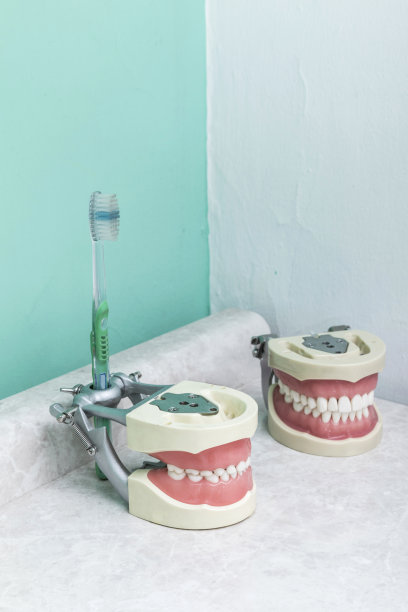Summary: Root canal treatment, often misunderstood and feared, plays a crucial role in preserving dental health by treating infected or damaged pulp. This article aims to guide patients through essential guidelines and precautions for a successful root canal experience and recovery. It emphasizes understanding the procedure, choosing the right dental professional, preparing appropriately, and adhering to post-treatment care. By following these recommendations, patients can alleviate their concerns and enhance their chances for a smooth recovery, ultimately improving their dental health outcomes.
1. Understanding the Root Canal Procedure

Before undergoing a root canal, it’s important to thoroughly understand what the procedure entails. A root canal is designed to treat infection or damage within the pulp of a tooth. This often involves the removal of the diseased pulp, cleaning the root canal, and sealing it to prevent further infection. Knowing the steps can help demystify the process, easing anxiety and preparing patients for what to expect.
Researching the procedure, including its purpose and benefits, can empower patients and help them feel more in control. Its vital to understand that a root canal is often the best alternative to tooth extraction, allowing for the preservation of a natural tooth and avoiding further complications associated with missing teeth.
Additionally, discussing the procedure with your dentist can clarify any doubts. Make sure to ask about the expected duration, the anesthesia process, and any potential discomfort. A clear understanding can alleviate anxiety and make for a more comfortable experience.
2. Choosing the Right Dental Professional
Choosing a qualified dental professional is crucial for a successful root canal treatment. Not all dentists perform root canals; it may be beneficial to seek an endodontist, a dentist specializing in this area. Most dental associations provide listings of accredited professionals, aiding in finding a suitable provider.
When selecting a dentist, consider their experience, patient reviews, and the availability of advanced technology. A skilled endodontist will likely employ the latest techniques and tools, minimizing discomfort and ensuring a more effective procedure. Personal recommendations from friends or family can also lead to finding a trusted professional.
Moreover, don’t hesitate to schedule consultations with potential dentists. This allows for discussion of their approach, experience levels, and comfort with the procedure. The right professional can provide reassurance and a tailored treatment plan that aligns with individual needs.
3. Preparing for the Procedure
Preparation for the root canal is essential for a smooth process and recovery. Patients should follow the dentists recommendations, including dietary restrictions before the procedure. For example, avoiding food or drink prior to treatment can ensure minimal discomfort during anesthesia.
Additionally, ensure that all medical history is accurately updated with the dental office. Inform the dentist about any medications, allergies, or underlying health conditions, as these factors may influence treatment. Discussing any anxiety about the procedure can also help the dentist provide appropriate sedation options.
Lastly, consider arranging transportation for the appointment, especially if sedation is used. Having someone to accompany you can alleviate stress and assist you during the post-treatment recovery phase.
4. Post-Treatment Care and Recovery
Successful recovery from a root canal greatly depends on adhering to post-treatment care guidelines. Patients should monitor any discomfort levels, which are often due to inflammation. Over-the-counter pain relief medication can usually manage discomfort, but always follow your dentist’s advice on what to take.
It is equally important to follow care instructions regarding diet after the procedure. Initially, a soft food diet can reduce any irritation to the treated tooth. Avoiding extremely hot or cold foods can also help manage sensitivity during the recovery period.
Lastly, maintaining oral hygiene is vital for healing. Continue regular brushing and flossing, but be gentle around the treated area. Regular dental visits following the procedure are essential for monitoring the recovery process and ensuring the success of the treatment.
Summary:
In conclusion, a successful root canal treatment experience hinges on understanding the procedure, selecting the right professional, preparing adequately, and adhering to post-treatment care. With the right knowledge and preparation, patients can navigate the process confidently and enhance their recovery.
This article is compiled by Vickong Dental and the content is for reference only
Vickong Dental
Vickong Dental is a large medical group established in Hong Kong in 2008 by professors from well-known medical universities in Guangdong and Hong Kong, as well as medical doctors from key national '985' universities (including Master's supervisors and senior professors). The chain of branches brings together expert dentists with PhDs and Master's degrees from Hong Kong and Mainland China, committed to providing high-quality dental treatment.
"Vickong Dental Practices the University Motto of 'Healing and Serving Society,' with a Stable Operation for Sixteen Years. It Has Been honored with Hong Kong Enterprise Leaders's Choice,' and is a Global Trusted Implant Center for the Nobel Implant System. Recommended by Hong Kong Metro Broadcast and Guangdong Television, it Serves Customers from Over Thirty Countries and Regions, Gaining the Trust and Favor of Citizens from the Guangdong-Hong Kong-Macau Greater Bay Area and Surrounding Cities.

Thousands of customers' unanimous praise
The most recognized and highly recommended dental service by customers in the Guangdong-Hong Kong-Macau Greater Bay Area
We Ensure You Receive Detailed Care and Attention Here
Hong Kong standards, Shenzhen prices, Your Trusted English-speaking dentists

Vickong Dental Medical-Grade Instrument Disinfection Process
Vickong Dental Medical-Grade Instrument Disinfection Process

Vickong Dental Chain: A Warm and Comfortable Environment for Treatment






Appointment Hours

Q&A
Why choose Vickong Dental?
Vickong Dental practices the university motto 「Medicine to Benefit Society」, with each branch bringing together highly qualified dentists with doctoral and master’s degrees from Hong Kong and the Mainland, and has maintained seventeen years of steady operation。Recipient of 「2024 Hong Kong Enterprise Leaders Brand」, 「2025 Hong Kong Enterprise Leaders Brand」, a Nobel Biocare Global Trusted Implant Center, and a brand recommended by Metro Radio Hong Kong and Guangdong TV。
To date, we have served customers from more than thirty countries and regions,earning exceptionally high word-of-mouth recognition and trusted recommendations from residents across the Guangdong-Hong Kong-Macao Greater Bay Area and surrounding cities
We have eight major branches in Zhuhai、Shenzhen,and a consultation and service assurance center in Hong Kong,so you can book a free consultation at any time for any questions,which is very reassuring.
If I do not accept the quotation after the CT scan, will I be charged??
No! As long as the actual treatment has not started, you will not be charged any fees.
Will there be any additional charges during the treatment process?
No, there won’t be any additional charges. Before treatment begins, we will clearly explain the treatment plan and its corresponding fees. Only after the patient agrees and signs the consent form will we proceed with the dental service.
Can I pay in Hong Kong dollars?
Yes. Vickong Dental accepts payment in Hong Kong dollars. The amount will be converted based on the exchange rate of the day, and the applicable rate will be clearly communicated to you in advance.
Can I reschedule my appointment at any time?
Yes. Please contact us via **WeChat** or **WhatsApp** as early as possible, providing your original appointment time and details, along with your preferred new date and time slot for rescheduling.













